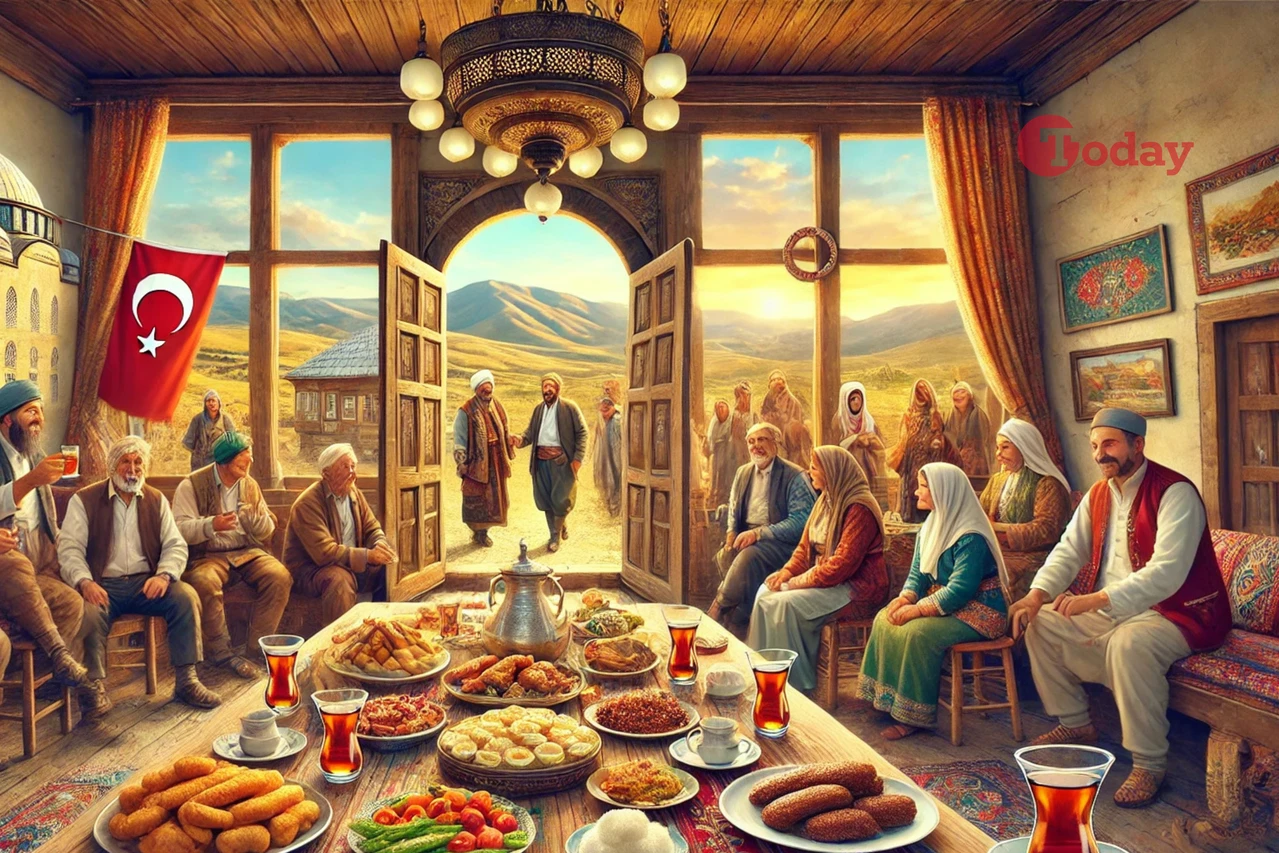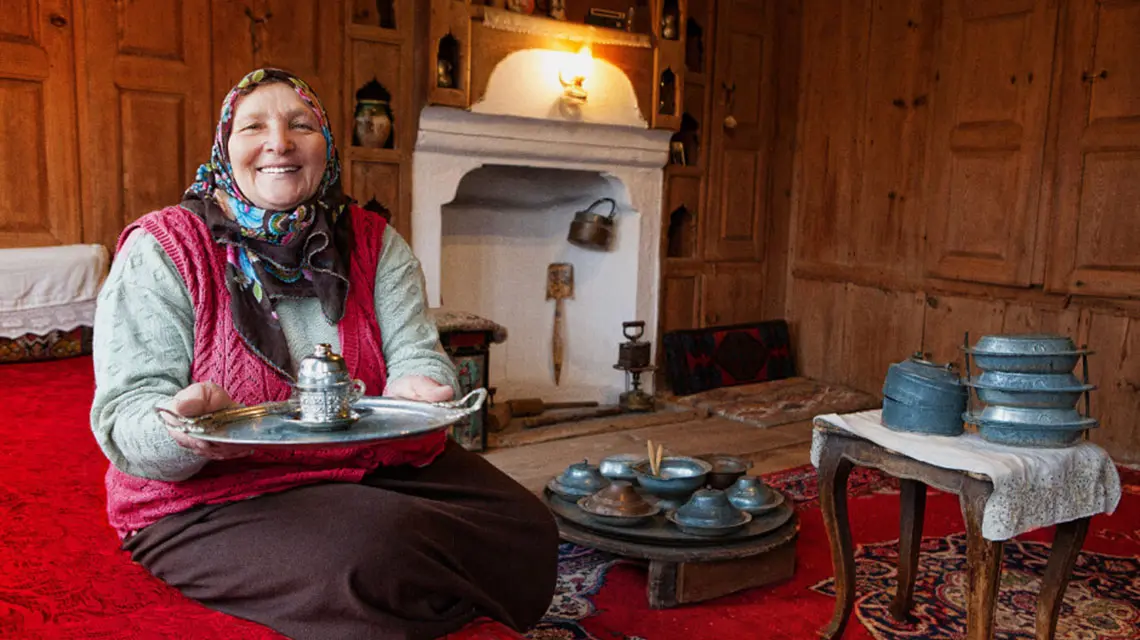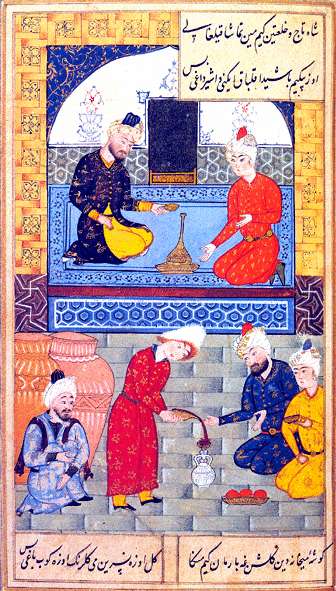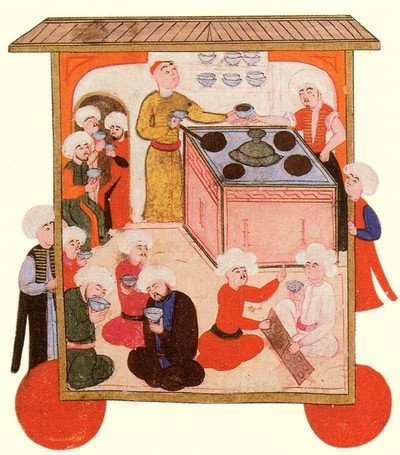Unveiling legendary hospitality of Turks through eyes of global travelers
 An AI-generated image depicting examples of Anatolian hospitality from past centuries. (Photo via Türkiye Today)
An AI-generated image depicting examples of Anatolian hospitality from past centuries. (Photo via Türkiye Today)
From the vast steppes of Central Asia to the far corners of the world, Turkish people have long been renowned for their legendary hospitality. This deep-rooted tradition has not only survived centuries of migration and cultural shifts but continues to be celebrated by travelers, historians and researchers who have left a significant cultural legacy.
Hospitality remains an integral part of Turkish identity, symbolizing respect, generosity, and communal responsibility across generations.
Rich history of migration and cultural exchange
Historically, the Turks originated from the steppes of Central Asia, living as nomads and establishing powerful empires across vast regions. Over time, these nomadic peoples expanded westward, entering the lands of Persia and Byzantium, and eventually advancing to the heart of Europe. Their influence stretched across the northern and southern coasts of the Caspian and Black Seas and into North Africa, transforming the Mediterranean into what many called a “Turkish lake.”
Throughout their migrations, the Turks encountered diverse cultures and religions. Despite these interactions, they maintained core aspects of their identity, with hospitality being one of the most enduring features. The tradition of welcoming guests with open arms has remained a fundamental characteristic of the Turkish people, from the wealthiest rulers to the poorest citizens. Turkish hospitality transcends mere politeness, offering not only food and shelter but also safety and security to visitors.


Hospitality: Cultural hallmark for Turks
The concept of hospitality in Turkish culture has been admired and documented by foreign travelers, historians, and researchers for centuries. Whether in the deserts of Central Asia or the bustling cities of Anatolia, the Turks’ hospitality is a universal practice. It is more than a social custom—it is a reflection of respect for others and a deep sense of communal responsibility.
The hospitality tradition has its roots in the nomadic period, where Turks, despite living in large herds, shared their resources generously with visitors. They would often sacrifice valuable livestock to ensure that guests were treated with utmost care. This tradition continues today, with the Turkish people proudly upholding the ancient customs brought from the steppes of Asia.
Travelers’ accounts of Turkish hospitality across time and regions
The French traveler Bertrand de la Broquiere, traveling through Anatolia in 1432, also witnessed the hospitality of the Turkish nomads in the Iskenderun region. Broquiere noted that the Turks were hospitable not only to him but also to his companions. He observed that when a poor person passed by, the Turkish nomads would invite them to share their meal, an act that was quite foreign to Europeans at the time. This example illustrates not only the Turks’ hospitality but also highlights the contrast with European customs. In addition, the Akkoyunlu and Crimean Turks also displayed similar hospitality, as witnessed by various travelers.


In 1474, the Venetian envoy Ambrogio Contarini, traveling through a Turkish village in the Akkoyunlu region, praised the hospitality he received from the locals and Uzun Hasan, the Akkoyunlu ruler. Contarini described how he was continuously invited to meals and treated with great care. This hospitality was not limited to the Akkoyunlu Turks but was also extended by the Crimean Turks in the 18th century.
Baron de Tott, who visited Crimea in the 1700s, observed the warm hospitality of the Crimean Turks and their respect for guests. Tott was invited to stay at a Turkish house in Basarabia and was treated to a meal by an elderly host. The elderly host explained that hospitality was a deeply ingrained value, rooted in Turkish customs rather than religious practices, and emphasized that they would offer hospitality to anyone, regardless of their social or economic status.
Role of hospitality in Turkish society
Hospitality has always been a symbol of honor and humanity for the Turkish people. In rural areas, where the sense of community is stronger, hospitality plays a central role in daily life. It is common for entire villages to come together for significant events like weddings and funerals, sharing meals and celebrating as a community. This practice highlights the enduring importance of hospitality as a value that binds people together, creating bonds of kinship and mutual respect.
In urban settings, where apartment complexes and social distances may create barriers, the tradition of hospitality is less visible but still present. It may take the form of smaller, intimate gatherings or the offering of help in times of need. Regardless of the setting, Turkish hospitality remains an essential cultural practice that reflects the kindness and generosity of the people.
Continuation of ancient values
The hospitality that the Turkish people offer today is not merely a product of religious or cultural shifts; it is a value deeply ingrained in their heritage, originating from the nomadic days of their ancestors. As the Turks migrated to various parts of the world, they carried their hospitality with them, adapting it to new environments without losing its essence. Foreign travelers, historians, and scholars have long recognized this unique aspect of Turkish culture, often noting how it stood out among other nations.
Today, the legacy of Turkish hospitality is not only a living tradition but also a source of pride for the Turkish people. It is a cornerstone of Turkish identity, one that continues to be celebrated by travelers, researchers, and historians worldwide.



